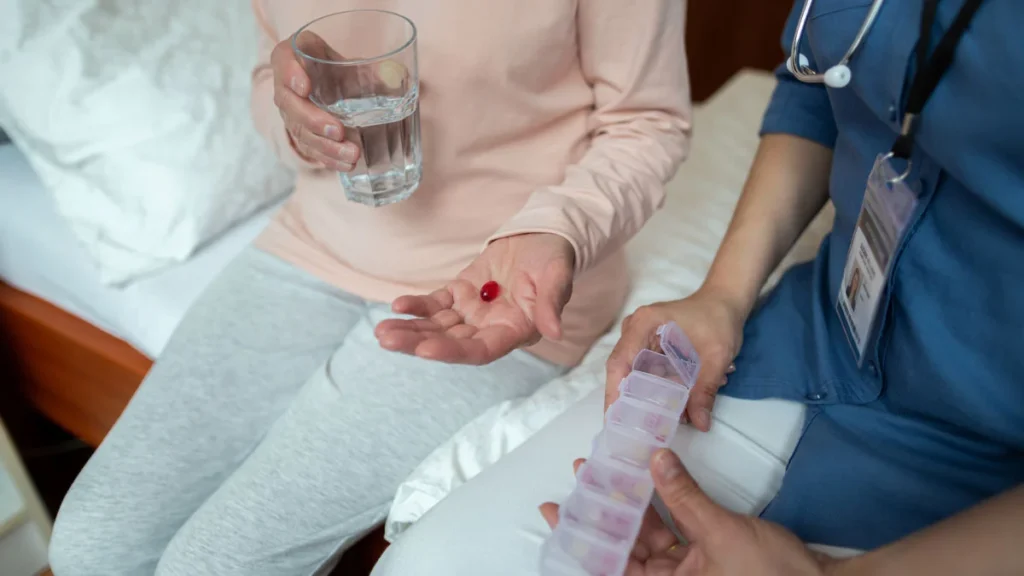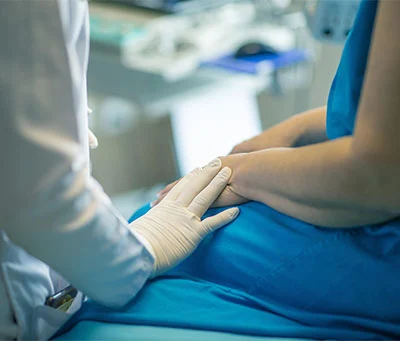
Typhoid Fever: Symptoms, Causes, Prevention & Treatment
Typhoid fever is caused by bacteria known as Salmonella typhi (S. typhi). They typically live in humans and are shed through a person’s urine or feces. Typhoid occurs when a person drinks or eats something contaminated with the bacteria. When this microbe gets into our body, it quickly increases and spreads into our blood vessels.
People usually get typhoid by eating food or drinking beverages that have been touched or handled by someone who has typhoid fever. Additionally, those who are infected can directly infect others by touching them directly with unwashed hands. Drinking water contaminated with sewage is another way that people contract the illness.
Table of Contents
ToggleSymptoms of Typhoid Fever
Symptoms are likely to start slowly, often showing up 1 to 3 weeks after exposure to the bacteria.
Early illness
Early symptoms include:
- Fever, that often starts low and increases gradually throughout the day, possibly reaching as high as 103 degrees F or 40 degrees C
- Headache
- Weakness
- Chills
- Rash
- Muscle aches
- Stomach pain
- Diarrhoea or constipation
- People also may have a cough, sweating, or loss of appetite.
Later illness
After a few weeks, the illness can cause problems in the small intestines. People may have:
- Swollen stomach
- Stomach ache
- Sepsis, a bacterial infection of the gastrointestinal tract that spreads throughout the body
In severe cases, people may:
- Not being able to pay attention
- Become confused.
- Not able to react or understand the world around them.
How Is Typhoid Fever Treated?
Antibiotics are used to treat typhoid fever by killing the bacteria. People with typhoid fever need to continue to take medication as directed by their doctor, even though they start feeling better. Because, if you quit too soon, some bacteria might still be present.
The majority of patients experience improvement in 2-3 days after beginning treatment. To avoid becoming dehydrated, they should consume lots of liquids. A patient suffering from severe dehydration as a result of diarrhoea may require intravenous (IV) fluids in a hospital or other healthcare facility.
For better treatment of typhoid fever, it is recommended to schedule an appointment at Hale Clinics, which has the Best General Physician in Mohali.

Prevention Tips
- Good hygiene: Wash your hands thoroughly and frequently, especially before preparing food. Use an alcohol-based hand sanitizer in the absence of soap and water.
- Food and drink: Avoid food from street vendors and food stored or served at room temperature.
- Vaccination: If you’re traveling to areas with a high risk of typhoid fever, consider getting vaccinated.
- Avoid raw food. Avoid raw, unpeeled vegetables and fruits that may have been washed with unhygienic or contaminated water, especially fruits like berries that can’t be peeled. Better options are avocados, bananas, and oranges; just make sure to peel them yourself. You might want to strictly prohibit raw foods for your children for their own safety.
Conclusion
Typhoid is a common disease in developing countries, and without proper treatment, more than 30% of cases can become fatal. A person living or visiting an area where typhoid fever is common should take extra precautions and wash or sanitize their hands frequently.
If you are experiencing any symptoms of typhoid fever, you should schedule an appointment at Hale Clinics, which has one of the Best General Physicians in Chandigarh.
FAQs:
1. What is typhoid fever?
Ans. Typhoid fever is a bacterial infection caused by the bacteria Salmonella typhi (S. typhi). It is typically spread through contaminated food and water sources and can lead to serious illness if left untreated.
2. What are the symptoms of typhoid fever?
Ans. Early symptoms include fever, headache, weakness, chills, rash, muscle aches, stomach pain, diarrhea and loss of appetite.
3. How is typhoid fever treated?
Ans. Typhoid fever is treated with antibiotics, which kill the bacteria causing the infection. Patients need to take the full course of antibiotics as directed by their doctor, and they should also consume plenty of fluids to avoid dehydration. In severe cases, intravenous fluids may be required.
4. How can typhoid fever be prevented?
Ans. Prevention tips include practicing good hygiene (handwashing, using hand sanitizer), avoiding food from street vendors and food stored at room temperature, and getting vaccinated before traveling to high-risk areas.
5. What are the risks of untreated typhoid fever?
Ans. Without proper treatment, typhoid fever can be fatal in more than 30% of cases. It can lead to serious complications such as sepsis, dehydration, and organ failure.
